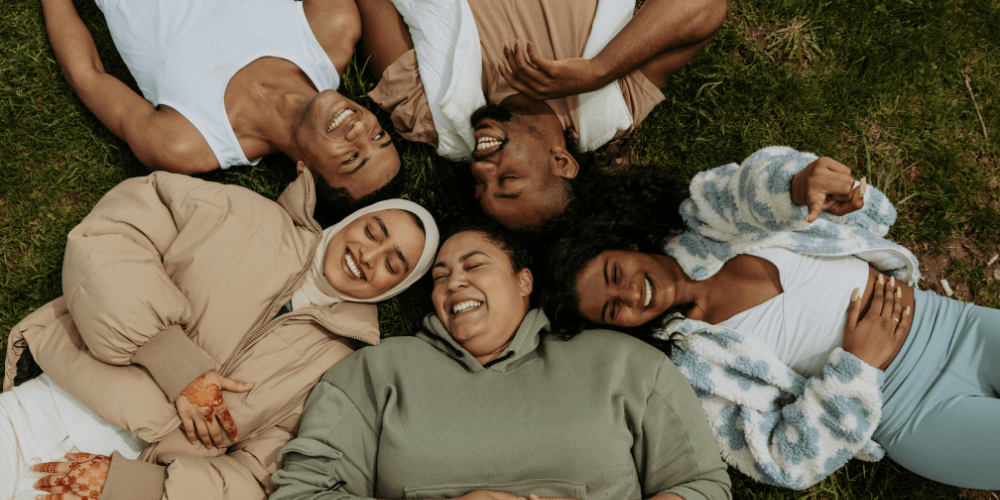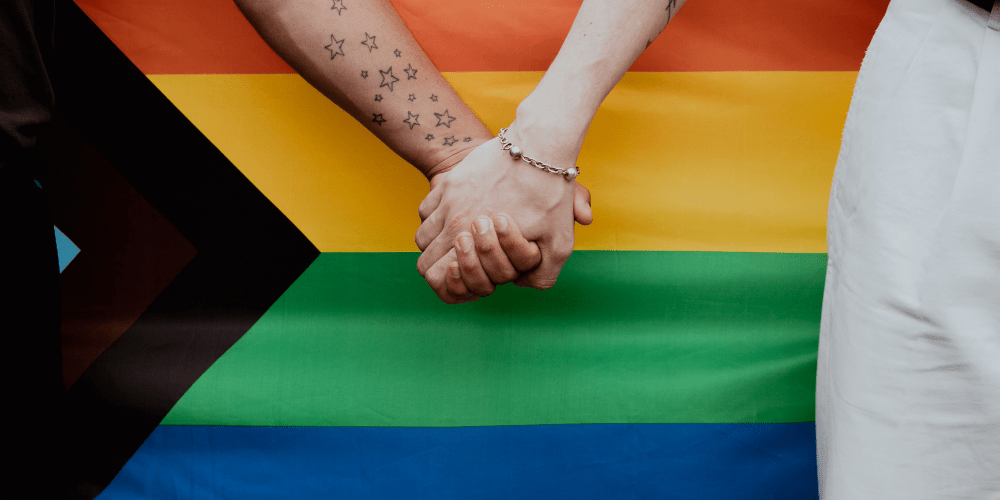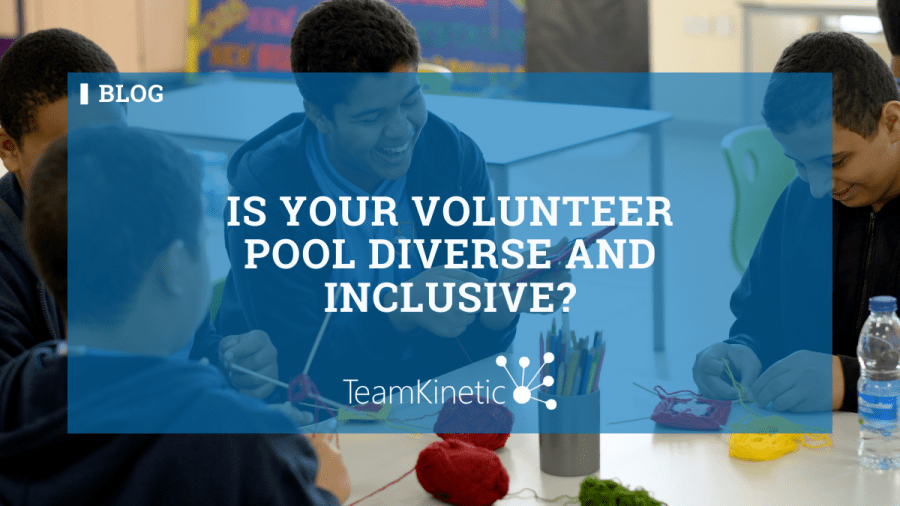Organisations should be diverse and inclusive to the communities they serve, and your volunteers should mirror that. So, how do organisations achieve this? A recent agenda consulting survey gives us some more detail into how volunteering organisations value diversity.
Agenda Consulting undertook a survey as part of their ‘Diversity, Equity and Inclusion in the UK Third Sector’ report. The report looks to understand people’s views and experiences of diversity, equity and inclusion (DEI) within the organisations they work with. The survey covers 8 sectors: Gender, Gender different to that originally assigned at birth; Ethnicity, Disability, Religion, Sexual Orientation and Age.
Agenda Consulting Survey:
The overall view from survey results states the average positivity for DEI is 72%, with neutrality being 21%. The average negativity is 7%. What is most surprising is that the highest level of negativity is regarding age: at 12% negativity overall.
It’s clear that while there are mostly positive results, there’s still work to be done: 67% of respondents feel the leadership groups display their commitment to DEI. However, just 48% of people feel their organisation is committed to promoting the representation of diverse groups. By recruiting and retaining a workforce that is diverse, you can work towards building stronger perceptions.
Sector Results:
The results show for gender little difference between men’s and women’s perception, yet statistics from Agenda’s People Count, show that gender balance shifts as we move through levels of seniority. There may be an imbalance in results. 76% of the survey sample are female, fitting with Volunteers Count of 70% of all volunteers being female. For more information, we have a blog post which dives into the reasons why women volunteer more than men.
For those whose gender is different to that originally assigned at birth: results suggest there needs to be education within the sector. Only 50% believe that, regardless of gender reassignment, people are treated equally. By increasing the education or knowledge of volunteers surrounding DEI, it becomes an organisation-wide initiative, instead of being held to within one department.

There is a strong perception that there is equal treatment regarding ethnicity, with 73% of people feeling like everyone is treated equally irrespective of race/ ethnicity: but 10% disagree. Perceptions of equal treatment are considerably lower for those respondents from an ethnic minority. More awareness is needed throughout organisations: and this should be done by the very people who it directly affects. We’ve looked deeper into the socio-economic status surrounding volunteers and whether volunteering is too white and wealthy…
Disability, Religion, Sexual Orientation and Age:
The results from disability-related questions show that 67% feel people are treated equally, with 24% neutral and 9% feel negatively. This use of ‘neutral’ suggests that volunteers don’t have enough insight. This is possibly due to the fact that just 4% of volunteers are disabled (according to Volunteers Count). If we remove those barriers, we open volunteering up to a wider community with fresh ideas and skills, representing wider society as a whole.
74% feel that people are treated equally despite a person’s religious beliefs, with 22% of people feeling neutral and 4% opposing the statement. There are several groups who are the least positive. Agenda’s report outlines those who identify in another way and ethnic minorities as standouts for those who aren’t as positive. It can be suggested that this is down to wider societal stereotypes, which are translating into the volunteering sector.
Overall, only 1% of those who identify as Lesbian, Gay or Bisexual (LGB) felt they weren’t treated equally due to their sexual orientation, whereas 84% of people did. During the survey, it was LGB groups who thought less positively about the statements being asked of them. This possibly suggests that they are more aware than others about the inequalities minorities face.
As mentioned above, it is age that has the greatest discrepancy when it comes to being treated equally. Out of the 3% of under 25s who took part in the survey, only 59% felt positively, with 18% negative. As age increases, the negativity does too. This suggests a divide within organisations among age groups on whether certain groups of people are treated equally.

So Why Should We Increase the Diversity of Volunteer Programmes?
Harvard Business Review confirms that when a team member shares the ethnicity of their client, the entire team is 152% more likely to fully understand the client. This ability is crucial for volunteer programmes. By increasing the diversity of your organisation you receive new ideas and approaches to your work; with new volunteers, you gain people from different educational backgrounds with different soft skills, like communication.
All of this helps your organisation, but it also helps those you volunteer for: your volunteers can be role models. Those who can see themselves within volunteers can inspire and increase their aspirations. They may also want to volunteer in some capacity too! Organisations should be looking towards becoming inclusive for all, for a stronger future.
So How Do We Increase the Diversity of Volunteer programmes?
There are a number of strategies to ensure your volunteer programme can become inclusive for all. Starting with your language. Switching up your language to attract certain groups of people can help you gain a wider audience.
Start to build relationships! Building up relationships with communities means you can speak freely and they can too! It’s important to identify those communities you want to engage with: it’s important you’re authentic.
The policies that your organisation has may need rewriting. What you have written down versus the culture surrounding your volunteer programme can be drastically different.
Diversity, Equity and Inclusion are so important for volunteer programmes who want to move forward. It’s simple, organisations must be inclusive for all. Your pool of volunteers should mirror the community you work in. With a diverse pool of volunteers, you have an opportunity. Team bonding exercises can bring people together.
AVM’s Making an Inclusive and Accessible Recruitment and Onboarding Experience
Save the Date! Wednesday the 27th April, 9:30am- 12:30pm, AVM are hosting an event helping you to create an inclusive and accessible recruitment and onboarding experience! Straight from AVM, at this event you will…
- Hear ideas on how you could adapt your recruitment and onboarding process to be more inclusive
- Learn how organisations have overcome some of the barriers to inclusive recruitment
- Reasonable adjustments that can be made to ensure your recruitment process is accessible to all
- How to attract a diverse range of volunteers and what you might need to consider
- Have an opportunity to plan your next steps, in small groups with your peers
Learn more about the event and how you get your tickets here!
Manage Your Volunteers:
We now know how important diversity and inclusion are to volunteer organisations and volunteer management. An efficient and effective management system is needed to help you help your volunteers and the community. TeamKinetic can help you recruit, retain and realise the potential of your volunteers…
You can find TeamKinetic on social media and listen to our podcast:
Twitter Facebook LinkedIn YouTube Instagram Podcast
Have you enjoyed using TeamKinetic? If you could leave us a review on Capterra, we’d really appreciate it! We’ll even send you a little thank you.

2 Pingbacks